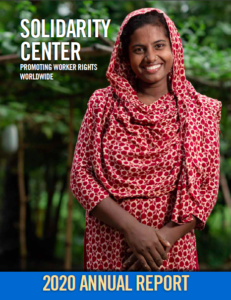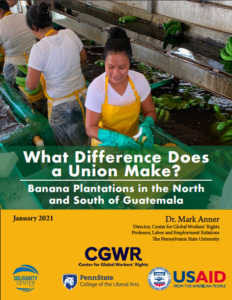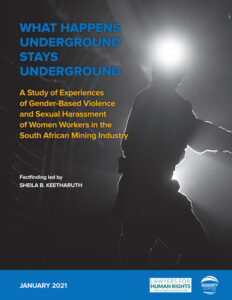 |
 |
 |
Workers in Asia’s cheapest garment-production hubs are increasingly agitating for better pay, and some big foreign clothing brands say they are willing to help finance wage increases. “It’s unprecedented. It’s a recognition of the role they play,” said David Welsh, Cambodia program director for the Solidarity Center.
Local labor law does not regulate the company-provided trucks and vans used to transport garment workers, but the vehicles are not a safe option to get to work, said Dave Welsh, Solidarity Center Cambodia country director. However, “if they don’t get into the trucks, they don’t get to work and they don’t get paid.”
In the works is a radical overhaul of labor laws, which will redefine the lives of more than six million impoverished migrant workers. “The conditions [in Malaysia] are appalling,” said the Solidarity Center’s Dave Welsh. “If even a modicum of what trade unions put forward is enacted into law, this is a huge game changer.”
The Solidarity Center reported in May that more than a dozen garment factory union leaders in Gazipur were physically attacked or threatened with violence.
According to David Welsh, program director for Cambodia at the Solidarity Center, “In Cambodia there’s a complete absence of living wage… This is a race to the bottom.”
Being placed on consecutive short-term contracts in Cambodia’s predominantly female-staffed garment sector is forcing many women to choose between a family and a factory job. Solidarity Center country director Dave Welsh said factories frequently use fixed-duration contracts to cheat women out of maternity leave.
“Workers are protesting because they are being paid starvation wages,” says David Welsh, Solidarity Center country director. “There won’t be a solution to this problem until the brands are willing to increase the prices they pay their suppliers so that those suppliers can pay the workers decent wages.”
The pay boost is not only less than what the Solidarity Center has outlined, but also far less than the $11.11 protesting garment workers have asked for in recent months as they forced some factories in the capital to stop production.
According to research by the Solidarity Center, less than 1 percent of women in garment factories participate in worker associations in Bangladesh’s export zones.
The Cambodian government-established commission concluded that a garment sector living wage should range between 111 and 127 euros. But the minimum wage for workers at the beginning of this year was set at only 73 euros. “The government has ignored the findings of its own commission. Because of this, the unions called for protests,” said the Solidarity Center’s David Welsh.